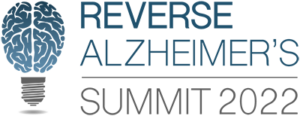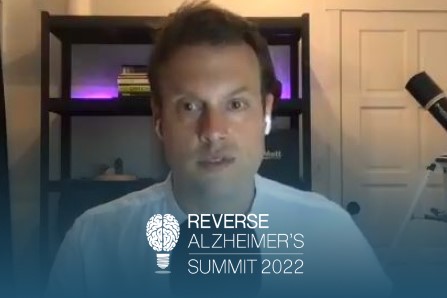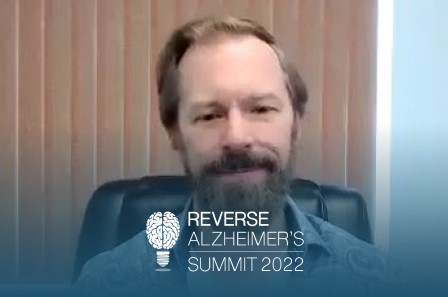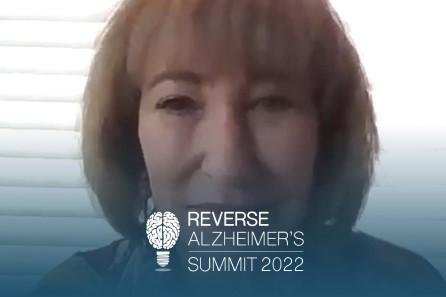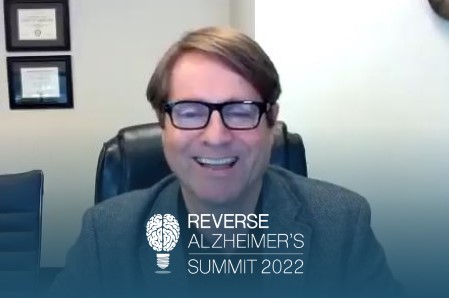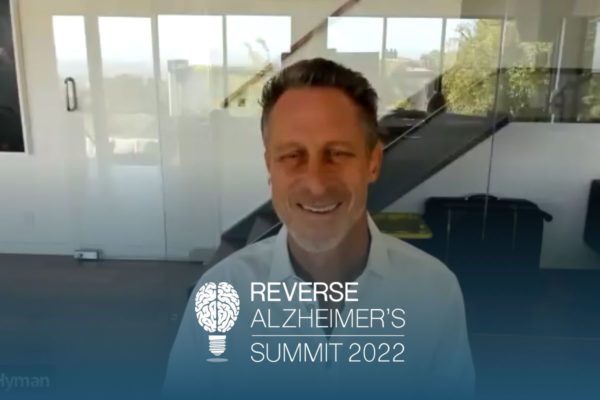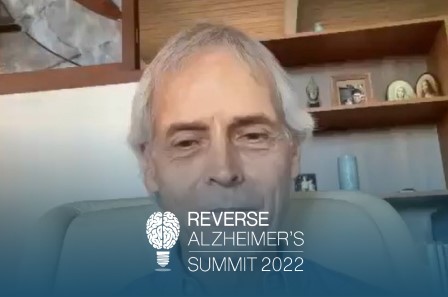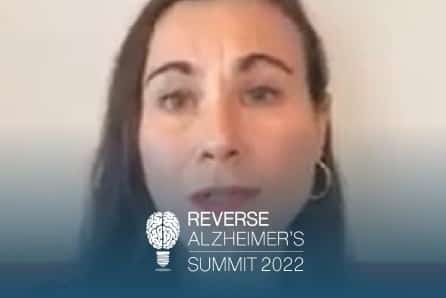Join the discussion below
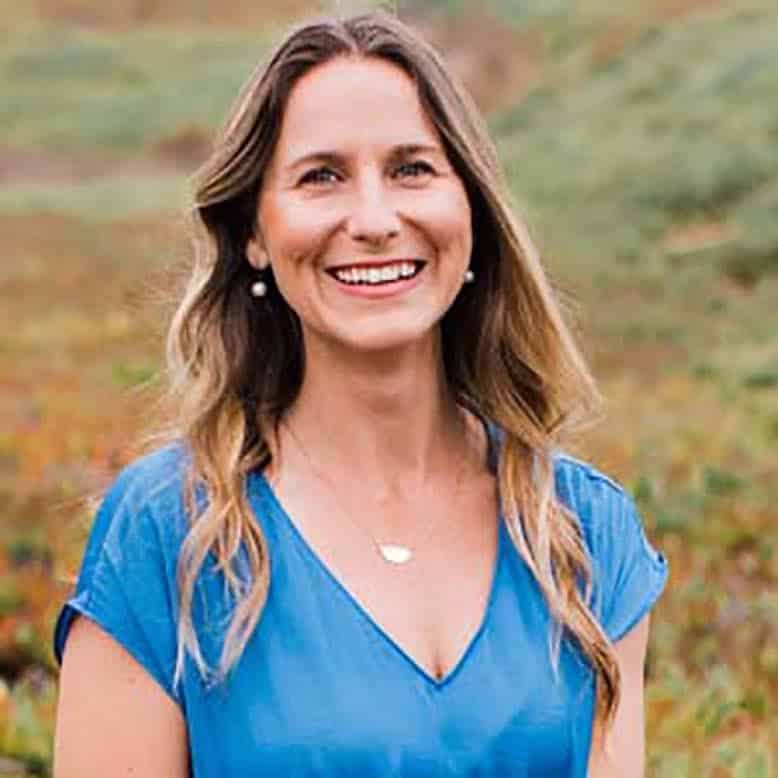
Dr. Heather Sandison is the founder of Solcere Health Clinic and Marama, the first residential care facility for the elderly of its kind. At Solcere, Dr. Sandison and her team of doctors and health coaches focus primarily on supporting patients looking to optimize cognitive function, prevent mental decline, and reverse... Read More
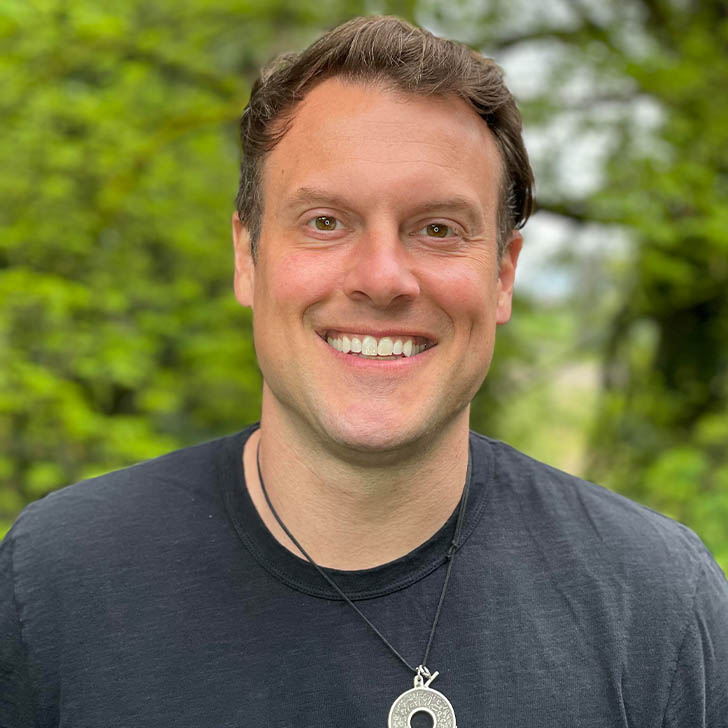
Sean McCormick is the host of the Optimal Performance Podcast and a certified life and performance coach with clients like NFL and MLS players, CEOs and Television stars. Sean is an expert in performance biohacking. Having tested, studied and applied hundreds of health and performance approaches for himself and his... Read More
- Using biohacks for better brain health at any age.
- Why adults of any age should care about dementia.
- The most important lifestyle decisions for brain health.
Heather Sandison, N.D.
Welcome to this episode of the Reverse Alzheimer’s Summit. I’m your host, Dr. Heather Sandison. And today, I’m delighted to introduce you Sean McCormick. He’s the host of the “Optimal Performance,” podcast and a certified life and performance coach with clients like NFL and MLS players, CEOs and television stars. Sean is an expert in performance biohacking. Having tested, studied, and applied hundreds of health and performance approaches for himself as well as his clients, Sean knows how to get the most from the least, more productive thinking, faster recovery techniques, sleep hacking, lifestyle hacking for optimal cognition, habit, and routine creation. Sean helps people improve rapidly with the least amount of work. Sean, welcome.
Sean McCormick
Thank you so much. I’m so excited to chat with you today.
Heather Sandison, N.D.
So, this is fun. I don’t know if you know, but I hosted the neurohacking podcast for a long time. And so, love the biohacking, neurohacking stuff, of course. And with dementia, we don’t always have the luxury of getting started before there’s already symptoms. So, we’re not really talking about optimization, as much as we are kind of in this almost desperate state of like just getting people’s brains back a little bit. And yet, there’s tons of overlap in what we would do for a neurohacker who’s looking, or biohacker, looking to optimize function and be like a professional athlete or a CEO like you work with and then, what we’re doing with our patient, my patients with dementia. So this idea, what we see is that the people who aren’t able to implement are the ones who don’t benefit. And as a coach, I’m really curious, like if you had a couple of suggestions for people who are like struggling to get started, what would you say?
Sean McCormick
Yeah, that’s a great question. And I think it, you’re totally right. I mean, the ideas around optimizing cognition are theoretical until you implement them in your life. And depending on the phase that you’re in, lifestyle changes that you can make early will dramatically improve your results. And I think first and foremost sleep. I mean sleep is by far the number one thing that everybody does every single day. And if you’re struggling with it, if you’re waking up two or three times a night, there’s ways to hack that. If you are using a sleep tracker and you’re, and you don’t like the numbers or the sleep score that you’re getting, there’s things, there’s so many things that you can do from turning down the temperature in your bedroom or using a weighted blanket, putting on blue blocking glasses when the sun goes down. Doing these sorts of practices to prepare your body to sleep is by far, I think, the most important thing that people can do. I’ve got tons of other ideas. But if you get sleep down, if you can find a way to get restful sleep and you know when you wake up in the morning, if it was a good night’s sleep or not. You kind of get that feeling. And when you wake up and you’re clear and you’re ready to go, your life changes. Your whole life improves. So, I would really suggest that sleep is like the number one thing. I could keep going. But I know that you’ve got other questions.
Heather Sandison, N.D.
Well, no, I love that. Sleep, I couldn’t agree more. It’s like one of those places that I hope for people is a relatively easy place to start, but the returns are so big, in this kind of 80… As I was reading your bio today, I was like, oh, he’s all about the 80/20, like how do we do 20% of the work to get 80% of the benefit. And I couldn’t agree more that sleep is just so crucial, particularly, if there’s like an issue, like sleep apnea or something like that. And yet, just from a personal experience recently, I start, I got on the ketogenic diet, again, after it had been a little while and I wake up more refreshed. And so, it was actually the dietary intervention that allowed me to get better sleep. So, there’s lots of kind of different inroads here and figuring out which one is feasible for you is first. So, tell me a little bit about lifestyle design and why this is important for staying cognitively fit.
Sean McCormick
Yeah, well, this kind of goes back to the original thing that you said which is you can have great ideas around cognitive longevity, cognitive speed, staying away from brain fog but they’re just ideas until you start experimenting with them. And I think for some folks, it’s such a big issue. Something as serious and as scary as dementia and cognitive decline, it’s tough to figure out where to start, what changes to make in your life, in your habits, in your routines. And so, I kind of think about this a nod to Dr. Bredesen around inflammation, toxicity, energetic, and trophic factors. And so when we think about inflammation, we think about, well, where does inflammation come from. While certainly, the food that we eat. A big old bowl of pasta is going to be a much different choice than a salad with some fish for dinner. And the inflammation that you’re gonna experience from a gluten bomb at night with maybe one or two glasses of red wine is going to infect inflammation. And what’s another cause for inflammation is stress. And stress is such a tough thing because you, it’s hard to quantify. It’s tough to say, well, I’m an eight out of 10 or a two out of 10. But finding ways to manage your stress effectively through meditation, through EFT and tapping, to walks in nature, a hug from a loved one, these are all things that you could do to stave off inflammation. Nutrition is huge. Fasting is huge. If everybody experimented with skipping a meal every once in a while, just start small. Maybe skipping breakfast is outta the question for you, but maybe try skipping lunch once a week.
You can go as far as to doing like a five day fasting-mimicking diet from L-Nutra to really kick it off, shed 10 pounds and lower your inflammatory markers. But just like you said, ketosis, just eating less carbs, maybe you’re tracking with a keto meter with your blood, maybe you’re not. Maybe you’re just eating less grains. But keto, eating keto, being in ketosis, even taking exogenous ketones is going to lower your inflammation. Another thing that a lot of people really don’t think about is we’re swimming in a soup of electromagnetic frequencies all day long. You and I are surrounded by Wi-Fi routers. Most of us are. Everybody working from home is surrounded by radiation, even these AirPods that I have stuck in my ears that are talking to each other in my brain. I have EMF blocking stickers on these, so this is a little bit better. But those sort of inflammatory markers, they can be mitigated through little changes that you make to your lifestyle, how you spend your day, are you getting enough time outside. So when it comes to toxicity, I really do think mostly about diet. You should avoid exposure to glyphosate like the plague. Sugar and glyphosate alone, if you could figure those two things out, your life is going to improve and it’s a doozy. Anybody who’s listening right now that decided that they were gonna stop eating sugar hated life for a couple of days. And then, on day three or four of that process, the clouds parted and you felt better and you slept better, but it is it’s toxic. Exposure to estrogenic chemicals in your fragrances and detergents, they’re contributing to, they found there’s microplastics in people’s lungs.
That’s a level of toxicity and so, what can you do to detox? Sauna exposure to activate heat shock proteins. Those sorts of practices that you can weave into your lifestyle are really helpful. When it comes to energetics, the fourth way that I think about this, again from Dr. Bredesen, how’s your blood flow, how’s your breath, how’s your, are you conditioning your vagus nerve, are you humming, are you getting exercise that can stoke that fire and get all of your systems back toward homeostasis. That stuff’s duh, right? Exercise is good, but it doesn’t need to be like marathons. Going out for 10 minutes for a walk here or there, especially after a meal, to avoid those spikes in glucose. To be metabolically flexible, now, we know absolutely how important that is as far as managing the sort of energetic systems in your body. And then the last one, the trophic factors, hormones, your thyroid. Hormones are such a huge thing for again, I’m the biohacker guy, so I have exposure to all of these practices and growth hormones, and all sort of cutting edge stuff. But hormones, I, in my experience with the people that I’ve worked on, that is a huge factor in your quality of life. And we know that by the time some of us reach 35, our endogenous hormone creation plummet and it gets worse and worse. And so, what are you doing to nourish your hormones? What sort of adapting and herbs are you taking to get your hormones on track? And again, it doesn’t have to be this big, huge life changing thing. It can just be little steps towards nourishing those factors in your life in a fun way and an easy way. And it makes a difference.
Heather Sandison, N.D.
Huge difference. So, yeah, where do you see kinda biohacking play a role? And I’m kind wondering that it get it more the devices or is it more the interventions? How do you see biohacking play a role in the prevention and reversal of dementia?
Sean McCormick
Yeah. So I think of biohacking in this one way that I think resonates with a lot of people, what goes in you, what goes on you, and what goes around you. And so, when you think about what goes in you, what are you eating and drinking? Are you getting outside and getting vitamin D and getting that through your skin? Are you covering yourself with clothes that have been washed with Tide PODS that have just these estrogenic chemical? I’ll say it here. There’s no such thing as a clean smell. Clean is not a smell. There is no fragrance associated with clean. So, finding nontoxic detergents and soaps, getting away from fragrance use, aluminum in your deodorant, those sorts of things are the on you portion of how we biohack. And then around you, which is light exposure, late at night affects your sleep. Again, EMF mitigation techniques. Are you turning off your Wi-Fi router at night because you don’t need it. You’re not surfing the web. That in and of itself, I think, would improve people’s sleep tremendously. So when you think about biohacking from that perspective, what goes in you, on you, and around you, that pretty much encompasses your own physical interaction with the outside world. And there are so many different things that you can manage when you think about it that way. Then there’s the tech side, right? Neurofeedback, doing the wave, tracking with a health tracker, a Fitbit or an Apple Watch, to understand that, yeah, you should get 10,000 steps today however you can do that. I think of that as biohacking because it’s quantifiable. Hopefully, it’s goal oriented. You’re getting that 10,000 steps every day. And then, from the sort of nutrition side, supplements are huge.
And there is such an incredible array of nootropics, really brain drugs. Nourishment for your brain is such a huge thing. And even the exposure or consumption of some adaptogens to switch your brain on, you may, your brain might really love ashwagandha. Thinking about hacking in little ways, experimentation really is at the core of human optimization and biohacking. Try a new CBD tincture. Your endocannabinoid system is starved for CBD. And when you can start to experiment with that a little bit, supplementing slowly and carefully to see how your body responds, to me that’s biohacking. Above and beyond that, some even more out of the box ideas are experimentation with psychedelics. I’m a huge proponent of research going into both microdosing and macrodosing. We now know that psilocybin improves neuroplasticity and neurogenesis. And yeah, there’s a lot of stigma there but there’s great research going into that. So, you’re hacking, you’re biohacking your brain in all of these different ways. And if you don’t, I think it’s sort of another bigger idea is that you can have some fun with it. If it’s not a job or something to get done on your to-do list, if you can take some enthusiasm around tinkering around with some of these things, you may notice that your body really does respond to ashwagandha or that tracker that you’re using for your exercises are great signals to keep you going forward. So, I think biohacking fits into the umbrella for nourishing your cognition and keeping your brain young and smart.
Heather Sandison, N.D.
I think there’s also this idea of, especially in maybe the older generation, of like gosh, am I so self absorbed that I have to like think about these things all the time, or like shouldn’t I be focused on something else, and does my health really require this much effort. There’s a couple things that I would think would be helpful there. One is sort of acknowledging that we live in a toxic world that is not set up for us to be healthy, right? There’s stressors from our current environment and just the amounts of time people spend of every age on social media. There’s the type of food that you find easily in the grocery store. If you’re lucky, there’s decent food in the grocery store. And many people are in food deserts. The toxins that you talked about that are ubiquitous in the environment. So, just kind of coming to grips with the fact that like no, we’re not healthy. And when we’re comparing ourselves to other people and saying, oh, well, I’m healthier than her, her, her at church, when you’re comparing yourselves to an unhealthy population, that doesn’t necessarily mean that you are at optimal health. And so, some additional effort can be helpful. The other thing that I see really helpful in the biohacking community is community, right? That yes, we’re doing these kind of end of one trials on ourselves with this experimentation, with different trackers, or different products, or different meal, like recipes, whatever it is. And when we have that community to like bounce ideas off of, or share thoughts with, or to complain to even, to commiserate with when it feels hard and you’re craving a donut or something, when we have those people that can cheer us on and understand our perspective, that can really help with kind of pushing us in that direction and getting better success. So, I’m curious your thoughts. Just what else you see make people supported?
Sean McCormick
Yeah, I totally agree with that. I totally agree with that. And there’s a lot of online communities that you can be anything. You like to knit, cool. Join a knitting community online. Turn off the news and join a knitting community online, get the support there. But really in person is something that we’re starved for, especially after the last couple of years. When was the last time you talked to your neighbor or had them over for tea? Getting involved with, like you said, your church group, getting involved with the local schools, volunteering your time. I think you’d be shocked. I think a lot of people would be shocked about how their quality of life improves. A lot of us are losing the skill of like small talk and just chit chat with people because we we’re so glue to the TV and we’ve a lot of us have been really kind of stuck inside. And so, I think you’re totally right. I mean we know that the the people in the blue zones that live the longest have a deep sense of purpose in community, right? They’re eating certain things as well. But they have, they get up, they go do chi gong in the park. They play chess with their friends every Wednesday.
They go for walks. And that level of community is really important. And speaking to the octogenarians plus, they’re, I’m keenly aware that the world that my grandmother, who turned 90 this month, the world that she grew up in was before this explosion of glyphosate that depleted the nutrients in the soil. They canned foods that they grew in the backyard. So, talk about knowing your farm, knowing where your food comes from. Having a garden and eating the food from it is such a beautiful and purposeful way to live. And the boomer generation, my folks, they were brought up on canned foods, and prepackaged stuff, and Wonder Bread, and Little Debbie cakes and stuff like that. Macaroni and cheese is just like a bane on the existence of the world. My grandmother lived in a different world. And to your point, we have to be aware that that’s not real food. If you go into the middle of the grocery store, there’s no food in there. That’s manufactured, highly palatable, highly toxic food. Just stay on the outsides where the veggies and the produce, back to the meat and the dairy, and then come back. That’s really the way to be more in control and eat real food, and nourish your brain at the same time, yeah.
Heather Sandison, N.D.
And then, what about attitude and mindset? I know you talked a little bit about, of course, community comes into that, meditation and other kinda stress management tools that we have. But how do you see that playing a role in cognitive function?
Sean McCormick
we’re not taught this stuff in schools. We’re not educated on how to set goals or to have a positive perspective, to have any really optimism at all. We’re not taught how to let go of self-limiting beliefs. We’re not educated on how to create mantras that will propel us forward in our lives. And the work that I do with my clients that I’ve been trained on, that I use on myself, it is such a fundamental shift when you go from doom and gloom to gratitude. Gratitude alone, I mean we could do a whole, we could spend this whole conversation on the benefits of gratitude. But when you wake up in the morning and you think you are thankful for the fact that you had a bed to sleep in, you’re thankful for your family, starting your day with gratitude, sets a tone for the rest of the day. And what’s challenging is if your mindset’s not there, then you’re not gonna have the energy. You’re not gonna create the energy or the momentum to get your body right, to get your brain right. If you’re in a depressive state and that’s kind of where you stay all day, then it’s really tough to tinker around or have fun with improving your performance or your cognition. You just don’t have the gas and the tank to do it. And so, on a really basic, really highly actionable way is to just start with gratitude. Start with a dream journal. Start with any sort of journaling to get your thoughts down onto paper.
And then, you have a greater self-awareness. I’m working with a client right now who he’s on the other side of the country. A guy in his 60s and he’s now beginning to start to have some cognitive decline. He’s forgetting some people’s names. He’s brought up topics of conversation that were covered before with his friends and he’s starting to get really worried. He’s realizing that there’s something going on. So, he’s gonna go out and get the tests to try to go. I also sent him to the Cq test from Dr. Bredesen to kind of get an idea of where he is at in his cognition. But even before any of that stuff, if he doesn’t believe that he can get better then it’s a non-starter. It’s all theory. And so, what we’ve been working on really intently is some neurolinguistic programming techniques that he can use for himself first thing in the morning. So that he can have the enthusiasm and the optimism to go take his health and his performance and his cognition into his own control. So, I think attitude and mindset are super, super important and we just don’t have the tools for it. You could read. I could send you a thousand books that you could read that that might change your mind, but we really just need new tools and we need to be reminded that our mindset is everything.
Heather Sandison, N.D.
Yeah. It’s funny ’cause I’m reading a book called “The Untethered Soul,” Michael Singer. I don’t know if you’ve ever probably read it. I just heard about it. I don’t know how I missed this one on the self-help book section, but I’ve actually really enjoyed it. And a lot of the themes that you’re talking about like what our mindset is, what the conversations in our head, who are we behind that, and how we can kind of take control of this, the story we’re telling ourselves, so that it’s not limiting us. And we can balance that parasympathetic, sympathetic nervous system in a way that does really serve us. So, there’s such fun stuff in it. I feel like I’m constantly reading a book like that. There’s constantly one on my bedside table that I’m halfway through. Getting that inspiration though, and just being reminded, these are things we can fall back into patterns. And having something there to redirect you, whether it’s a person, a coach like you, a books. I think this is a lot of the reason people go to church is kind of get that grounding and that reconnection, that community. So whatever it is for you, for all of our listeners that keep them inspired and on track, and coming back to that attitude or mindset that really serves us versus the one that we can get stuck in a rut in that we know doesn’t, I think do it. Do whatever you need to do to make it happen.
Sean McCormick
Do it. Read the books, Go to church. The benefits of opening up your mind to learn something new that’s gonna immediately help you and make you better. It’s gonna make you more optimistic. It’s gonna give you a little bit more energy. Something to direct your attention away from Facebook and what your high school friend ate for dinner, away from media news stories that are meant to freak you out and keep you in fear. Fear changes our brain. It changes our mind. It makes it harder to think with our prefrontal cortex. If you’re stuck in fear, then it’s tough to get out. It’s tough to be productive. And there are the work of Bruce Lipton, self-hypnosis. You could do self-hypnosis at nighttime to get yourself out of that fear state. There are a ton of tools out there. They’re just not sexy. There’s not a lot of money to be made there and so they don’t rise to the top of our sort of cultural awareness. But that’s the stuff that, in my experience, really differentiates people who are happy and productive and going towards something and the folks that are just sort of getting by. And so, yeah, I mean it’s hugely important. Find a book. If you need book ideas, ask you or me and we can point you in the right direction.
Heather Sandison, N.D.
Yeah, there’s so many good ones out there. So, what makes you feel that younger people should be concerned about dementia and Alzheimers?
Sean McCormick
Yeah. Well, one thing is to really kind of shift that question a little bit. Concern, I think, is sort of a triggering word for people ’cause then it does immediately go, oh, that’s something that I should be freaked out about. And what we just said is to try to stay away from fear. But I think that younger people should definitely be thinking about taking care of their brain for some of the reasons that we’ve talked about already. The nutrient depletion of the soil just means that the foods that you’re buying at from the store are less nutrient dense. An orange is 10 times less nutrient dense now than it was 50 years ago. And if you think about that, it’s like oh, I’m eating an orange. I’m getting the vitamin C. This is good stuff. Well, it’s not nearly what it was a long time ago and it’s not gonna improve. It’s not gonna change. So as younger people, and I’m talking about folks in college even, when you start to think about taking care of your brain the same way that you think about taking care of your body, you can create new habits that will be nourishing. The Metaverse, as cool as that sounds, what that means is you are going to be sitting on a couch somewhere with some sort of goggle headset on, complacent, not moving, and walking through some virtual place. Technology is gonna continue to in advance, but it’s not going to stimulate physical or cognitive vitality. It’s just not. If we are shifting more and more and more toward a virtual world, a virtual reality, where you unlock your phone I think the average is like 250 times a day. You’re looking at your phone and opening it.
You’re getting that dopamine hit. And then, you’re going back to your business and getting that dopamine hit again, that’s not helpful. That’s not helpful for your brain. If you’re spending two hours on TikTok a day, watching people do dances and whatever, like that’s not going to uplift your mind and body and spirit. And we now know the numbers about depression in young people, anxiety in young people. The chemical interventions and prescriptions for those sort of depressive disorders, something’s gotta give, something has to change. And if you can’t find ways to shift your lifestyle, when you’re 19, 25, it’s gonna be harder to do when you’re 50. If you are the type of person that really enjoys walking around in nature in your 20s, that’s just gonna become part of your habits and your lifestyle into your 40s and 50s. And so, another point too is I think that the in-person community is so huge. And however you can, whatever sort of group or get together, meet up that you can join to cultivate a sense of community. Yes, it’s going to be awkward. Yes, you’re gonna have to do the small talk thing. But the benefits of that are immense. So, I think that it has to start really young because the factors are not in our favor and they’re going to go, we’re gonna get 5G and we’re gonna get 6G. There’s gonna be more of an EMF soup around us. The quality of our food is gonna keep getting worse and worse. So making sure that you are good in your body and you have a lifestyle in your 20s that translates over time into your later years.
Heather Sandison, N.D.
Yeah and the other thing that comes up for me as we talk about this is the demographic shifts, is that these baby boomers are a huge part of the population and they are coming up to the age where they develop dementias. And so, we are going to have more and more and more and more people, a bigger chunk of our population with dementia. And regardless of your age, you are probably going to be interacting with someone who has dementia, have a family member who does, have a loved one at some level who does, is suffering with dementia. You may be a caregiver to someone with dementia if you aren’t already. And so with that in mind, we want to have an understanding of what’s driving this disease. How could we potentially support? And also, certainly what drives me to work in this space is that we need that wisdom and experience of our elders. We need the people who have, who are at the height of their wisdom and experience, right? We need them engaged and involved in helping to raise the youngest among us, in helping to solve these litany of issues that we’ve both described, whether it’s soil depletion or the microplastics or 5G, whatever it is. Society is not set up to really promote health. And so, first being aware of that and then making the changes in our lifestyle, so that we can mitigate those risks is paramount. And then, hopefully, taking that and transforming it into being helpful to others who are already suffering or who maybe are at more risk of suffering, is what I hope that is sort of the message of this entire summit. When you think about all of this, what makes it harder these days to avoid all of these contributing factors, like outside of what we’ve already discussed?
Sean McCormick
Yeah, it’s special interests, it’s culture, it’s media, it’s the distraction from the betterment of the self. And I’m coming to an age with two small kids at my house where I find myself kind of poo-pooing. I made a dig at TikTok earlier and it’s like, oh, I just sound, you’re 39, Sean, and you’re, you sound like an older guy, complaining about this or that. And what I think is important to understand is that when money is on the table, when there is an advantage to some organization or special interest, whether it be the corn industry or, in some cases, pharma, or the deck is stacked against you. It’s not there in many cases to make you a healthier, happier, more independent, more sovereign individual. It’s there to get you to buy stuff. And we get so wrapped into culture, into the newest, coolest thing to distract ourselves with, it takes us away from the, from empowerment, the fact that we are sovereign individuals and that we get to make choices for ourselves. And so, when you become more aware of the influences on your behavior, and on your buying power, on the time that you spent on the internet, where your eyes go on a webpage, when you know, you sort of wake up a little bit and become aware of the factors that are working against you, that wanna tell you what to do, and tell you what to eat, tell you what to buy, and tell you how to think, then it’s all, for me and I think for a lot of people kind of my age, it becomes a challenge to rise to. I’m going to be the fittest, strongest, smartest, most purposeful, most loving individual that I can be and that has nothing to do with Netflix. It has nothing to do with the Kardashians. It has nothing to do with Taco Bell bringing back its pizza thing.
I mean, when NPR is doing a four minute segment on Taco Bell bringing back its Mexican pizza, it’s like what is going on here? What are we doing? This is insane. And when you wake up to some of this stuff, you realize that you don’t have to play that game. You can vote with your dollars. You can grow vegetables in your garden. You can make smart lifestyle choices that are not on the influence of big tech, or big media, or big pharma, big whatever. So, I think this is sort of an existential thing. It’s a spiritual thing. It’s just the coming awake and alive to your own divinity, your own life, your own purpose. And it takes a fair bit of energy to get there. It’s this double-edged sword. You gotta have the energy to be able to look critically at media. But you’re looking at media, so it’s hard to have the energy because you’re depleted by the latest news story. So, time in nature, meditation, turning the TV off a couple of hours before you go to bed, these sorts of lifestyle factors, high quality food, turning the TV off while you’re sitting down for dinner with your family, these sort of a generation ago were like really core values. They were there for a reason because they helped us live the kind of lives that we want. So, I would say you don’t have to be paranoid, but being skeptical of what you’re being force fed, is I think a really good idea and I think it’s good for your brain too.
Heather Sandison, N.D.
You’re probably familiar with James Clear. I think he wrote “Atomic Habits,” right? Is that correct?
Sean McCormick
Yep.
Heather Sandison, N.D.
Yeah, so there’s this idea of making habits that are healthy for you easy and that things that are bad for you harder, right? So at my house, we have a TV, but it stays in the closet. And if you wanna watch TV, you have to clear off like the coffee table or clear off something. Then, figure out how you’re gonna get the extension cord from the garage, because the cord doesn’t reach that far ’cause they’re designed to go above a fireplace or whatever and be stuck to the wall. And so, it takes effort to get the TV out. And so, it doesn’t happen as often. And that is the type of thing where if you notice yourself making these decisions over and over again, that you don’t want to, that you wanna break a bad habit, making it harder like locking things away, putting them on a shelf you can’t reach so that you have to go get a stool. You don’t have to completely get them out of your life, but if there’s a couple extra steps, like if Facebook, you don’t stay logged in, you have to put in your password every time. Even that amount of a little bit extra effort might prevent you from scrolling several times a day, which is gonna give you back a little bit more time and give you back probably a little bit more energy as well. So this, I think there’s a lot of hope here. You mentioned psychedelics and there’s a lot of psychedelic research, right? And this is all about awakening and consciousness, and a little, I think you can even take that to another level of like, how are we going to redesign society, right? It’s constantly happening. Like you said, your grandmother lived in a different world than we live in today. I have a three year old, so you’ve got young kids, I’ve got a young child. And when I imagine her adulthood, her senior years, what is the world that our generation is gonna create for them? And there is a lot of hope. And part of that is becoming aware, taking the steps, making those decisions, modeling what we think is beneficial and healthy for those children. I’m curious because you’re a biohacker and you’ve got young kids, like what are the kind of top priorities for you, for your children?
Sean McCormick
Yeah, that’s a great question. Yeah. And I have to say, I love that is so, that’s four steps further keeping the TV in the closet and having to get the extension cord, that is a lot of work to watch TV. That’s awesome. Man, I’m gonna really think about doing that ’cause I like that so much.
Heather Sandison, N.D.
And I spend all day on the computer, so it’s not like I don’t have screen time, but.
Sean McCormick
Right, right. Yeah, totally. Well, but that goes to the point, right? So you and I spend a lot of time sitting down, looking at the computer and the way that we develop our habits to offset all this computer time from blue blocking glasses to EMF mitigation tools. I’m actually hardlined in to the ethernet so that I don’t have the Wi-Fi exposure. I think that the future, as our, I’ve got a nine and a six year old, and the I think that in the greatest vision that I can possibly perceive of into the future is a true balance of lifestyle. Work is going to change it. It already has and it will never go back, right? This idea of most of us getting in the car and commuting in, and going into a big city, and going into high-rise and spending all day in an office, that’s already shifted. I mean that most friends of mine that work in the corporate world, they go in like once a week now. So now, they’re at home. So, work is going to change. The jobs that are available are going to change. Technological advancements are gonna automate a ton of stuff. And so, the future that I see does involve a balance of natural living, more smaller farms, community farms. Hopefully, going back to trading and bartering for goods and services. If there was one thing that I could say would be the most important thing is to just eat locally. Eat seasonally, eat locally. My family and I moved out to an island in rural part of the Pacific Northwest, because we wanted to get out of the city. We wanted chickens. We wanted a giant garden. We wanted more time in nature. We wanted to be more independence.
We have a well. And I think that the we can use the best of what technology offers, interconnectedness, speed of information, quantification for health, all of these amazing breakthroughs, balanced with eating locally, encouraging more and more time outside. I think that there is a balance and I believe that psychedelics are a part of that. I think that in probably 10 or 20 years, the use of especially psilocybin is going to increase. And psilocybin is a powerful, powerful compound and it does shift your default mode network. It does shift the way that you see yourself and what you want to be doing with your time. And the opening of the natural world, the accessibility of touching back in, slowing down, being more in sync with the seasons and the natural world around you, can be complimented by technological advances. So, I think that that work is going to be a lot different. I’m empowering my children to think for themselves and to be entrepreneurs. We’re growing sprouts and selling ’em on the roadside stand at our house. To practice what that feels like to grow some food that somebody buys, that puts money in your pocket. That’s such a tiny little thing. But growing micro greens and sprouts and selling ’em to your neighbors is this like I think it’s cool because they’re learning all these things. They’re learning how to cultivate. They’re learning how to make money on their ideas and their efforts. So, I think that the vision forward is a balance of the two things.
Heather Sandison, N.D.
That’s awesome. Well, that’s exciting and yes, very hopeful to kind of think about what are some of the solutions, even in the context of like one family, how we can look forward in a hopeful, exciting way. Sean, this is such a wonderful contribution. I really appreciate you taking the time to join us today. I wanna make sure that our listeners know how to find out more about you.
Sean McCormick
Yeah. They can go to seanmccormick.com. My podcast, the “Optimal Performance,” podcast is there. My coaching service is there. I’ll be launching a wellness platform, a custom health platform that’s basically a virtual health assistant in the coming months, which is going to totally, totally shift the way that we find health resources on the internet. Yeah and I really do encourage people to reach out. I’m really easy to find and I’m happy to engage and share ideas with people. So, yeah, that seanmccormick.com is probably the best way to do that.
Heather Sandison, N.D.
Awesome. I see a telescope behind you and there was a red moon last night. Did you guys get out there and check it out?
Sean McCormick
Well, I mentioned that we’re in the Pacific Northwest.
Heather Sandison, N.D.
Oh no.
Sean McCormick
I haven’t seen the moon actually. I think I saw it once in the last two months. We’re having a fairly gray, a fairly gray day, but it’s funny, right? Like now that the days are longer up here in the Northern latitudes in the great Northwest, but my kids still go to bed at 7:30 or eight o’clock. So the stars don’t come out till later, but that’s when it’s clear. So, it’s this like double edged sword. But yeah, we get out as much as possible. But no, I went out and looked up and said nope, not gonna see the eclipse tonight, guess that’s that.
Heather Sandison, N.D.
Dang. Well, you look prepared for when the skies are clear. That’s fun.
Sean McCormick
I’m ready.
Heather Sandison, N.D.
And the kids love that.
Sean McCormick
Yeah.
Heather Sandison, N.D.
Sean, it’s been such a pleasure. Thank you so much for joining us. I really appreciate it.
Sean McCormick
Thanks, Heather.
Downloads
